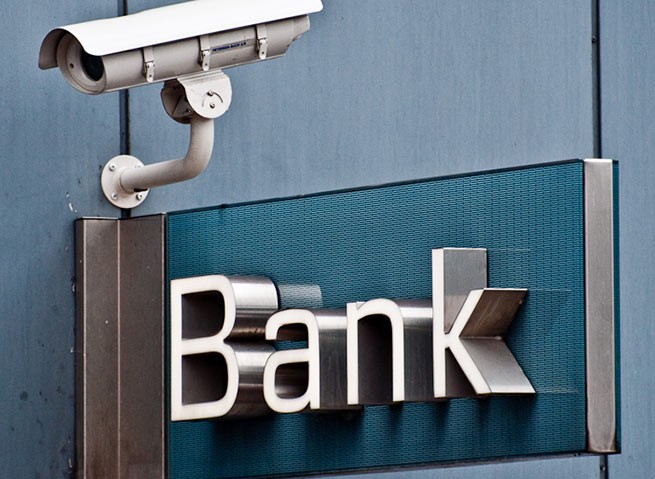On Tuesday, Fitch Ratings upgraded the ratings of four systemically important banks in Greece, continuing a recent cycle improving the country’s credit rating.
Fitch Ratings
Fitch Ratings has upgraded Eurobank SA’s Long-Term Issuer Default Ratings (IDRs) to ‘BB’ from ‘BB-‘ and its Viability Ratings (VRs) to ‘bb’ from ‘bb-‘. The outlook for long-term IDRs is Stable.
The rating upgrade reflects the structural improvement in Eurobank’s profitability driven by higher interest rates and lower deposit rates, careful cost management, and normalization of loan impairment charges (LIC) as a result of the bank’s successful strategy to reduce balance sheet risk. This has allowed the bank to build capital, strengthen regulatory buffers and provide greater flexibility to pursue investments and growth initiatives, which we expect will lead to greater sustainability of the business model.
Fitch Ratings also upgraded National Bank of Greece SA’s Long-Term Issuer Default Rating (IDR) to ‘BB’ from ‘BB-‘ and its Viability Rating (VR) to ‘bb’ from ‘bb-‘. Long-term forecast IDR – “Stable”.
The rating upgrade reflects structural improvement in NBG’s profitability driven by rising interest rates and low deposit rates, careful cost management, and normalization of loan impairment charges (LIC) as a result of the bank’s successful strategy to reduce risk on its balance sheet. This has enabled the NBG to accumulate capital well in excess of regulatory requirements and provided strategic flexibility to undertake investments and pursue growth initiatives, which we expect will lead to increased sustainability of the business model.
Fitch Ratings has upgraded Piraeus Bank SA’s Long-Term Issuer Default Rating (IDR) to ‘BB-‘ from ‘B’ and its Viability Rating (VR) to ‘bb-‘ from ‘b’. Long-term forecast IDR – “Stable”.
The rating upgrade reflects the acceleration of Piraeus’ strategy to reduce risk on its balance sheet, which has resulted in a marked reduction in its non-performing loan (NPE) ratio to a level closer to that of higher-rated banks. The rating upgrade also reflects strengthening regulatory capital ratios and a reduction in the capital burden from unreserved distressed assets (including NPE and foreclosed assets). The rating upgrade also takes into account Piraeus’ structural improvement in profitability, which will support further capital formation, stable funding and improved access to the wholesale debt market to meet minimum equity and eligible liability (MREL) requirements.
Fitch Ratings has upgraded Alpha Bank SA’s Long-Term Issuer Default Ratings (IDRs) to ‘BB-‘ from ‘B+’ and its Viability Ratings (VRs) to ‘bb-‘ from ‘b+’. The outlook for long-term IDRs is Stable.
The rating upgrade reflects a structural improvement in Alfa-Bank’s profitability, which will further enhance organic capital and lead to higher capital ratios. The upgrade to the IDR also reflects the bank’s continued declining trajectory of non-performing asset (NPE) ratio, stable funding and improved access to the wholesale debt market to meet minimum equity and eligible liability (MREL) requirements.
Moody’s ratings
Moody’s Investors Service today upgraded the long-term deposit ratings of six Greek banks (Alpha Bank SA, Attica Bank SA, Eurobank SA, National Bank of Greece SA, Pancreta Bank SA and Piraeus Bank SA) by one or two notches, as well as a separate core credit rating (BCA) of these banks. The outlook for the long-term deposit ratings of all six banks after the rating upgrade is positive.
The rating action is driven by structural improvements in the Greek economy, as well as significant improvements in banks’ financial performance. It also reflects the rating agency’s view that Greek banks have good prospects for maintaining relatively strong financial performance over the next two years, which will also strengthen their capital base and loss absorption capacity.
https://rua.gr/news/bissecon/57690-moody-s-povysilo-rejting-gretsii-na-dve-stupeni.html
The main rating driver is the improvement in operating and credit conditions in Greece, providing a more favorable operating environment for the country’s banks. Structural improvements and reforms have increased the economy’s resilience to shocks, leading to the recent upgrade of the sovereign rating to Ba1 (stable) from Ba3 (positive).
As a result, Moody’s upgraded Greece’s macro profile to Moderate+ from Moderate-, which in turn puts upward pressure on the standalone credit profiles of all six rated banks.
Moody’s believes Greek banks are now better prepared to deal with new challenges from inflationary pressures and rising interest rates that are likely to affect more vulnerable borrowers.







More Stories
Reduced fees for POS transactions, limited bank fees
Easter 2024: more expensive than travel, more modest table
Tourism: how much money foreign visitors spent in Greece